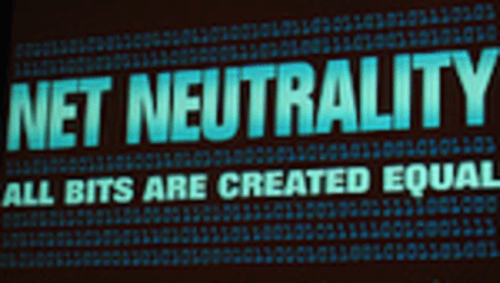A recently leaked report [PDF] from France’s State Secretary of Digital Economy reveals the government’s efforts to deeply bury net neutrality for this country. This is the latest episode in an ongoing attempt to control the Internet. The final chapter could take place as soon as next month when the National Assembly starts working on a net neutrality bill. The last hope for activists lies in a small group of more open-minded MPs who will also be working on that bill.

It is important for an American audience to understand that we have nothing like the First Amendment in France, and that freedom of speech is not granted in every circumstance; any kind of hate speech, for example, is illegal. Applying censorship to the Web to make it compliant with French laws would eventually censor millions of websites (not to mention lead to blind copyright enforcement).
Fabrice Epelboin, the editor of the French edition of ReadWriteWeb, took an active part in fighting the HADOPI “three strike and you’re out” law. He’s a Creative Common evengelist, an entrepreneur and is active in social media and webTV.
The recently leaked report is supposed to guide the UMP, the country’s ruling party, but politics in France are very fuzzy right now when it comes to the Internet.
September will likely see the French Senate approve the LOPPSI law, which allows for net censorship. Child pornography is ostensibly the target, just like in Australia, but it’s already expanding to other kind of content, despite promises made by the State Secretary for Digital Economy made during the debate last January.
Other freedom-frightening bills could be on their way as well. UMP Senator Jean-Louis Masson is pushing for a piece of legislation that would make it mandatory for bloggers to register their identity before being allowed to express themselves online. UMP Senator Jean-René Lecerf wants new French ID cards to be embedded with a chip so that connecting to the Internet would be – according to his plan – impossible without proper identification.
Caught between democracy and the free market, the constitution is coming into direct conflict with the digital age. France is at a crossroads.
Net Neutrality and the 2012 Elections
Net neutrality’s fate is now in the hands of a more progressive group of MPs who will start working on the bill in a few weeks. Lionel Tardy is among the very few in the right-wing UMP party who net citizens hold in high esteem; he strongly opposed the HADOPI law (which targets illegal file sharing) and understands the inner mechanics of the digital age. Hervé Mariton, who recently lead a working group on ethics and online interactions, has shown some interest in ideas coming from outside the anti net neutrality lobbies. Laure de la Raudière (right), who leads the group of MPs in charge of the upcoming net neutrality bill at the Assembly, is open to new ideas and also understand the Internet and its social impacts (a very rare characteristic among French politicians).

The French National Assembly, which used to follow whatever the government proposed during the HADOPI legislation, is now aware that the opposition among net citizens is very high.
Online publications such as Numerama and PCinpact, which strongly opposed the HADOPI law from day one, have seen a huge growth in their audience the last two years. The same goes for blogs like Korben.info and ReadWriteWeb France, which are also opposed to the death of net neutrality, and who have seen a significant increase in readership in the traditional journalism and political landscapes.
MPs now realize their own elections, which will take place in 2012, could be in jeopardy if they continue on the current path, and most Internet and political spin doctors (including former presidential counselors) admit that the way the government has handled Internet issues is catastrophic and could lead to a very serious problem during the 2012 presidential election year.
Will this be enough to prevent a digital civil war between a government that sees the Internet as its main source of problems and its netizens?
If net neutrality isn’t dead yet, then free enterprise and innovation is hurting, and free speech – the American way – which has been enjoyed since the beginning of the Web 2.0 era by French netizens, will follow closely behind.
Lead photo by Taramisu; second photo D.R. Laure de la Raudière.

















